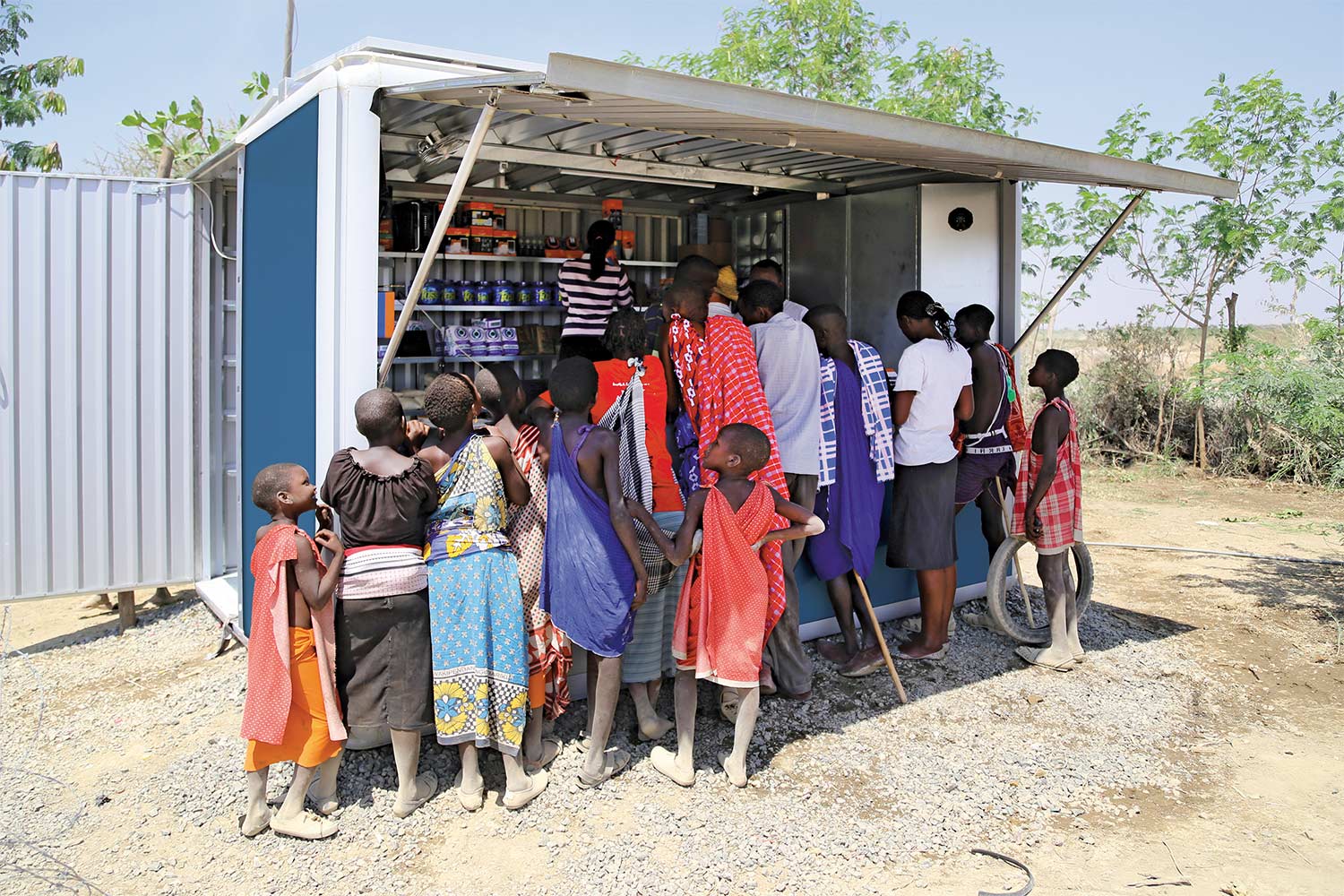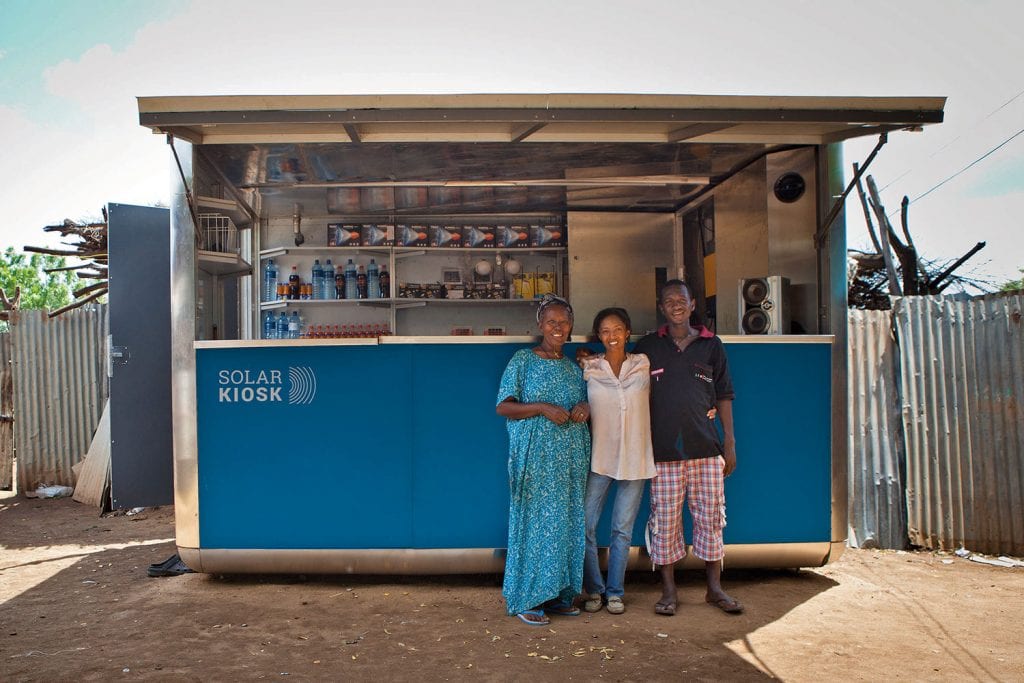
Empowering remote communities
Solarkiosk
Worldwide
Project details
Client
Solarkiosk GmbH
Architect
GRAFT
Services provided by Buro Happold
Specified for installation in a number of diverse locations across the globe, Solarkiosk provides access to a sustainable and self-sufficient electricity supply for remote, off-grid areas.
The solar energy produced is used for charging mobile phones, which are often the only form of contact in isolated communities, and refrigerating vital medicines and vaccines. The remaining energy can be used by schools, small businesses and other local facilities, helping further community development.
Challenge
A key part of role of Buro Happold’s structural engineers in the development of Solarkiosk was to minimise the use of materials and reducing the overall weight and cost of the unit. Maintaining a high-end but simple aesthetic was also a significant requirement from the client.

Solution
To ensure a cost effective and resistant construction, the Buro Happold team selected the type and thickness of aluminium used to create a structure that is both lightweight and also cost effective.
We needed to be certain that the kiosk would withstand harsh weather conditions, including tornados. With buildings at risk of severe damage and power sometimes disconnected for a prolonged period, the requirement for the Solorkiosk to still be standing and be fully operational following storms is essential. We reviewed the strength of the structural skeleton and its foundation to ensure robustness against wind loads that would normally be devastating.

Our engineers also provided alternative foundation solutions to allow the kiosk to be installed without the need for highly trained workers, while also allowing for a degree of flexibility to accommodate local engineering practices.

Value
Solarkiosk’s innovative lightweight, sustainable and affordable design means that power can be provided to the most remote and challenging locations, offering social, humanitarian, economic and educational opportunities. Solarkiosks are already located in Jordan, Ethiopia and Kenya, demonstrating how providing access to solar power can change the future of a community.



